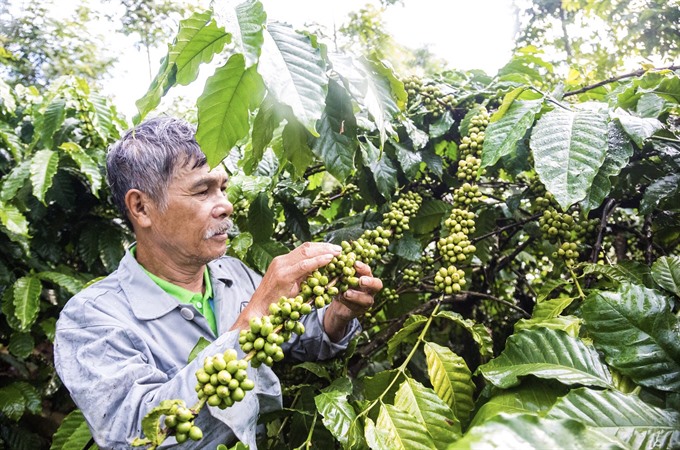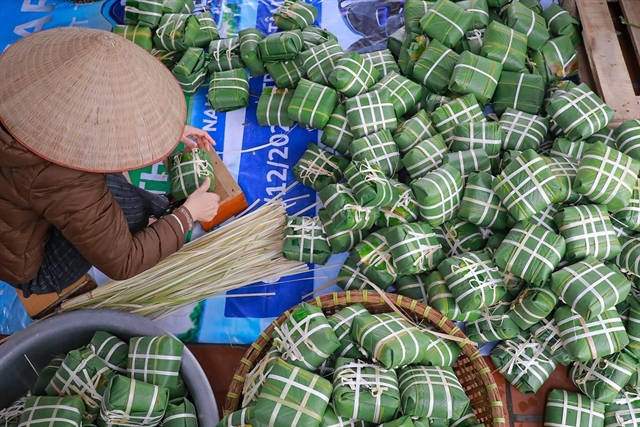Viet Nam News HCM CITY — “Better Life Farming”, an alliance of leading private sector companies created to develop sustainable and scalable business models with global and local partners to improve smallholder coffee farmers’ livelihoods, was launched in HCM City on Tuesday.
The global alliance has been created by Bayer, the International Finance Corporation (IFC), Netafim, Swiss Re Corporate Solutions, and Việt Nam’s Khang Thịnh Irrigation Technology JSC and ACOM.
By connecting global expertise with local insights and partners, Better Life Farming offers advanced agricultural practices, seeds, precision irrigation, crop protection, finance, insurance, digital technologies, and access to markets, each customised to fully address smallholders’ needs at scale.
Colin Taylor, IFC East Asia/Pacific regional lead, agribusiness advisory services, said: “Vietnamese smallholder coffee farmers are vulnerable to multiple challenges, from adverse climate impacts to difficulties in accessing inputs and finance. As a result they realise a fraction of their potential productivity.
“As part of the Better Life Farming Alliance, IFC helps smallholders bridge these gaps through supporting training initiatives, improved financial literacy and access to finance, so they can manage their farm as a business.”
Better Life Farming to support coffee growers has been piloted in Lạc Dương and Di Linh districts in Lâm Đồng Province since the beginning of this year, benefiting 190 farmers with a total of 300 hectares.
Their yields have jumped by 17-33 per cent.
Kohei Sakata, general director of Bayer Vietnam, said: “Through this initiative, we can see how dedicated and passionate smallholder farmers are working to feed their family, their community as well as the population on a local and global level.
“As a result, Bayer’s co-operation with smallholder farmers and developing customised solutions can have a real impact on their productivity and support them in their journey to grow their farming business and improve their livelihood.”
In Việt Nam, 80 per cent of coffee is grown by smallholders, who are particularly vulnerable to existential threats like adverse climate impacts, pests and crop diseases, poor infrastructure, rural migration, fluctuating commodity prices, and regulatory barriers.
They also have limited access to modern agricultural practices and technology and to finance and markets. — VNS
 Society
Society






